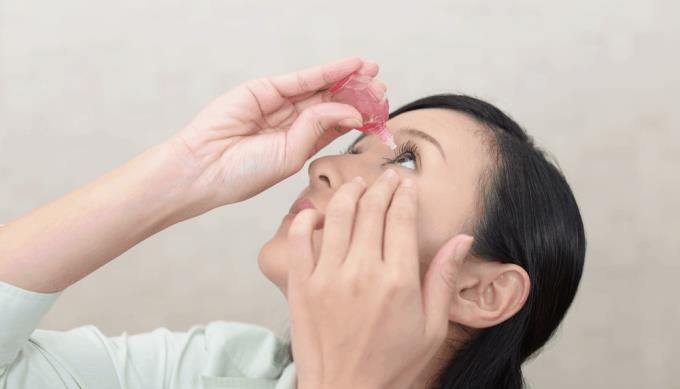Dry eyes during pregnancy are uncomfortable and will interfere with daily activities without necessary care.
Most body parts change while you are pregnant and eyes take a place on this list as well. There are many pregnant mothers who experience dry eyes, making them feel uncomfortable if they have to look at something for too long. This usually begins towards the end of the first trimester and can continue throughout the pregnancy, even for several months after the baby is born.
Causes pregnant women to have dry eyes
Some of the culprits that create dry eyes in pregnant women include:
1. Hormonal changes
Hormonal changes and androgen depletion are one of the main reasons for dry eyes. During childbirth and lactation , the concentration of these hormones will gradually return to normal, so dry eyes no longer exist. However, some women still experience this for a while after giving birth.
2. Reduced tear production
Hormonal changes during pregnancy also often affect tear production. If tear production is no longer as effective as it did before pregnancy, dry eyes are bound to occur.
3. The eye-lubricating oil gland is blocked
During pregnancy, the oil glands work differently than usual. These changes sometimes prevent the production of lipids and oils that lubricate the eyes, thereby altering the consistency of the tears. As a result, if you blink, you will feel dry because there is nothing to protect your eyes from the effects of the eyelids. You can apply a hot compress to the eye area to temporarily open blocked oil glands.
4. Save too much tears
Contrary to the aforementioned decrease in tear production that causes dry eyes, some women experience a sudden increase in the volume of tears during pregnancy. When the surface is irritated, the eye produces poor quality tears to remove irritants and naturally reflexively lubricate the eye.
Signs of dry eyes during pregnancy

Dry eyes during pregnancy are generally harmless, but they can be very uncomfortable for pregnant women. Some of the symptoms of this condition include:
Red and swollen eyes
Blurred vision for a moment if blinking
The eye feels uncomfortable and develops worse
The eyelids stick together, a phenomenon that usually occurs when you wake up in the morning.
Measures to improve dry eyes during pregnancy
Here are some tips to soothe dry eyes during pregnancy that you can try:
1. Artificial tears
To reduce the irritation and discomfort of dry eyes, pregnant mothers can consider using artificial tears. They are safe to use during pregnancy and lactation. Artificial tears effectively replace a part of lipids found in natural tears. If you wear contact lenses, make sure you choose eye drops that are capable of properly moistening the lenses.
2. Use a warm compress
The tear glands can be opened by gently applying warm compresses to the eyes. This measure restores the ability of the tear glands through stimulating the proper transport of blood flow to the area needed.
3. Surgical punctal obstruction
Routine punctal surgery or surgery , talking about the procedure of puncta-release. Puncta is a small hole in the corner of the eye that helps tears to flow. Punctal-off surgery is a safe procedure for pregnant women.
When should I see a doctor?
You should see your doctor if the symptoms of dry eyes are getting worse. Pregnant mothers may be infected with bacteria and need antibiotics. Don't hesitate to see your doctor if you notice flickering in your eyes, as this could be an early sign of preeclampsia , high blood pressure or even retinal failure.
Dry eyes are a common symptom of pregnancy. However, it is important that you do not use the medication on your own. Check with your doctor about the safety measures for dry eyes during pregnancy.












